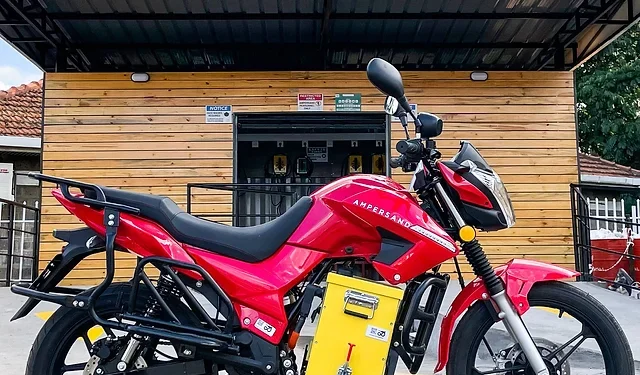Ampersand, a Rwandan electric motorbike manufacturer, has topped up its total funding to US$ 21.5 million after receiving US$ 2 million from investors in its Series A funding.
- The investors who participated in this raise include AHL Venture Partners, Everstrong Capital, and Beyond Capital.
- The funds, raised since December last year, have been used to ramp up electric motorbike production and increase battery swap stations across Rwanda.
- The funds have also been crucial for the firm’s research and development plans, facilitating the improvement of battery technology and swap systems.
“This latest funding is a testament to the strong investor confidence in our business model as we continue to scale and innovate within the African e-mobility sector,” said Ampersand CEO and founder, Josh Whale.
Ampersand will also set its sights on other markets across East Africa, targeting 100 million people who rely on bodabodas in both urban and rural areas in the region. The startup was founded in 2016 and has since grown its fleet to 1,700 electric motorbikes.
The startup intends to deploy about five million electric motorbikes by 2033, a goal that will immensely reduce reliance on fossil-fuel vehicles and offset thousands of carbon emissions.
“With continued urbanisation, our mission to electrify transport, cut carbon emissions and drive clean economic prosperity is more crucial than ever,” Whale said.
Ampersand records that its motorbikes cover 1.4 million kilometers every week in Kigali and Nairobi. It owns 18 charging stations in the two cities. Earlier in June this year, the startup partnered with Chinese EV maker – BYD – to manufacture 40,000 electric vehicles by 2026.
The raging competitive market for EVs in East Africa has attracted the interest of international manufacturers and opportunities for innovators. Governments in the region are also accelerating efforts to maximize clean electricity generation in preparation to the EV transition.
“As we look ahead to our upcoming Series B, we remain committed to reshaping how Africa moves by delivering affordable, low-carbon transport solutions that also drive green jobs and economic growth across the continent,” said Whale.
See Also:




